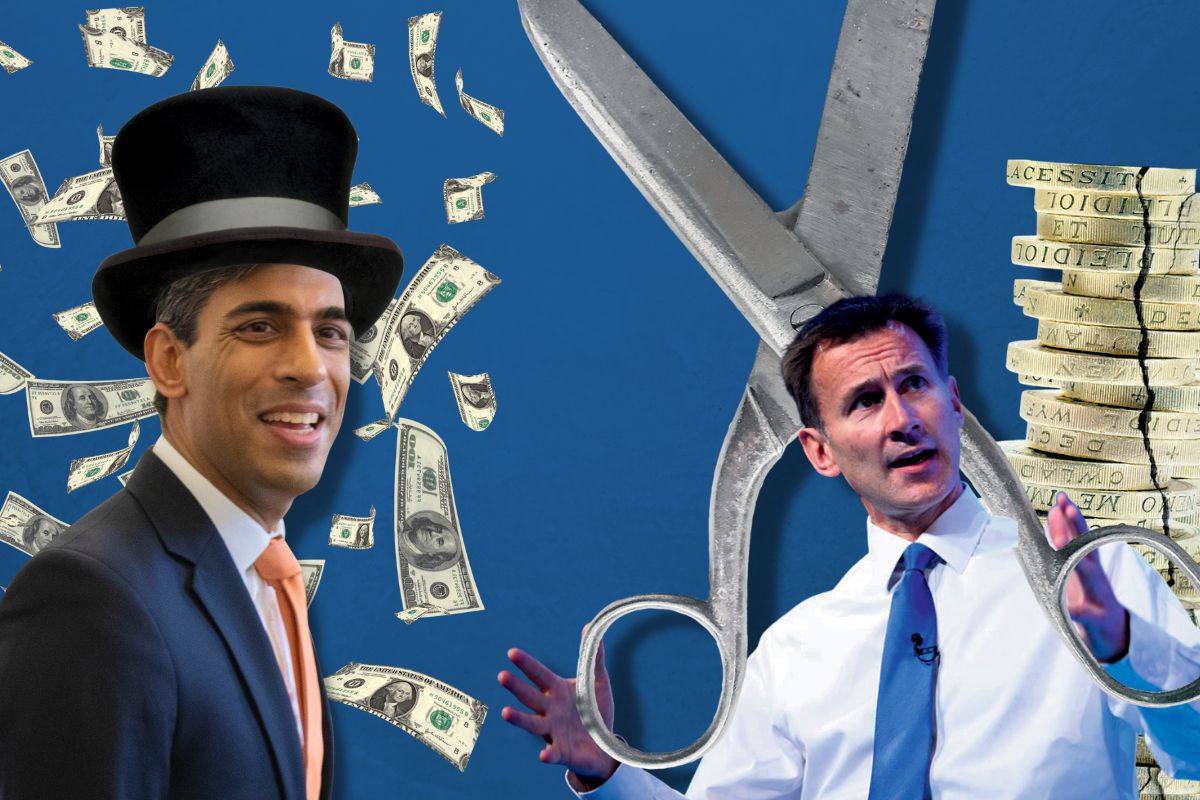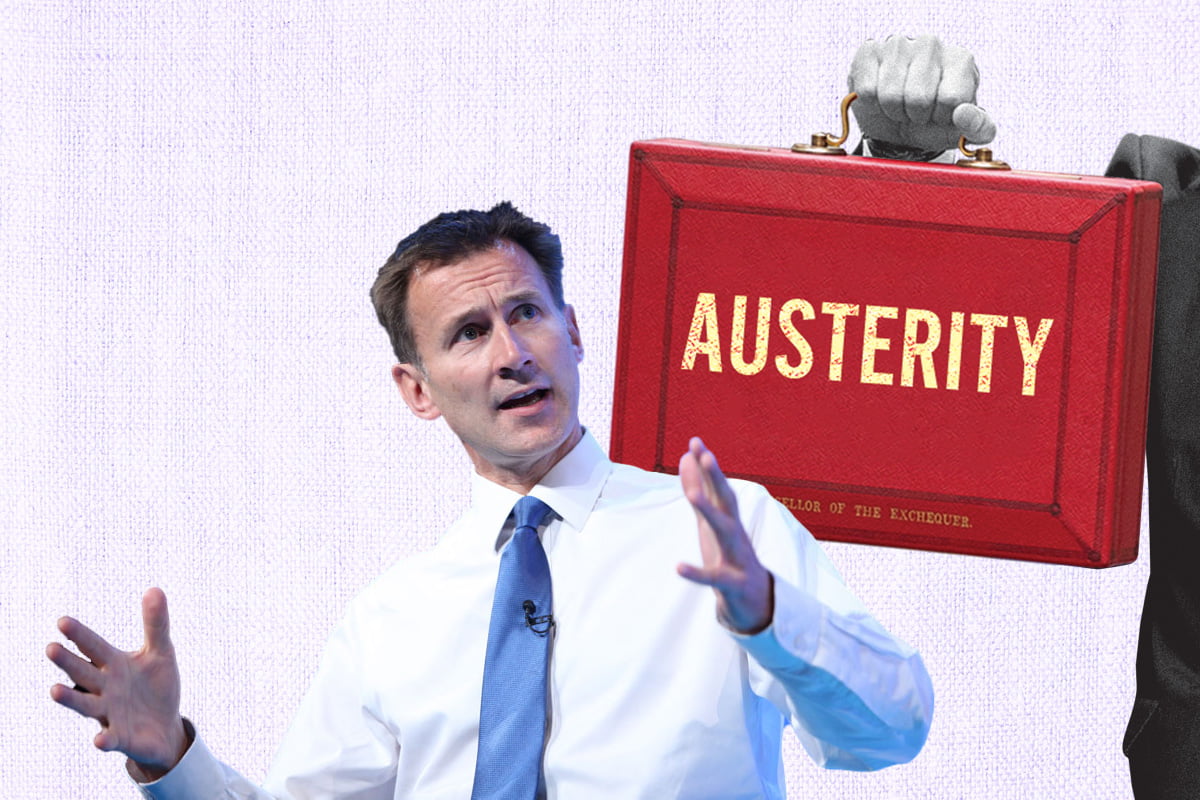Tory Chancellor Jeremy Hunt’s latest Autumn Statement is another case of giving to the rich with one hand, whilst taking from the poor with the other.
Facing electoral disaster next year, the Tories are keen to position themselves as the ‘party of low taxes’. Hunt’s latest package therefore includes a cut of 2 percent to national insurance contributions, in an attempt to placate the Tory faithful.
But behind the attention-grabbing headlines remains the small detail that nearly four million low-paid workers will be dragged into paying income tax, as a result of the Tories’ ongoing freeze on tax thresholds. Millions more will see their tax bills continue to rise as a result of this ‘stealth tax’.
Hunt also said that he had made the ‘difficult decision’ to cut welfare spending, in order to be able to give tax cuts to big business.
What he really means is that some of the poorest in society will have to make the difficult decision between heating and eating this winter, so that company fat cats can rake in bumper profits.
Inflation
Much has been made by the Tories about UK inflation falling to 4.6 percent in October, down from a peak of 11.1 percent a year ago. But whilst this is welcome news for workers, it still means that prices are rapidly rising.
Indeed, consumer prices are up 21 percent on average since January 2021, far outstripping wage growth. Workers’ living standards have taken a battering.
Energy prices have recently started to fall. But they are still 82 percent higher than in January 2021. And since then, food prices, clothing, and accommodation have increased by 30, 25, and 33 percent respectively.
So despite inflation slowing down, the situation for workers is still grim.
‘Hard decisions’

Echoing the Chancellor, PM Rishi Sunak has praised the Bank of England (BoE) for taking ‘hard decisions’ by repeatedly raising interest rates to tame inflation.
What this has meant in reality is massive profits for the banks, whilst misery is inflicted on millions in debt.
A recent survey by Savanta of mortgage holders in the bottom 40 percent of household incomes found that 76 percent reported going without basics such as food, energy, and warm clothing.
Low-income homeowners with mortgages have seen their borrowing costs rise by an average of £300 per month as fixed-rate deals expire, piling pressure on ordinary families.
Renters are also feeling the pinch, as landlords attempt to pass on these costs to tenants.
Although the BoE has put rate rises on hold for the time being, only three-fifths of mortgages have come up for renewal so far. Millions more will therefore soon feel the squeeze.
Bleak outlook
The UK economy has grown by a meagre 0.8 percent since 2019 – the lowest rate since the 1920s. Furthermore, according to TUC analysis, the Tories have presided over the biggest decline in real wages since Napoleonic times.
Projections by the Office for Budget Responsibility now predict lower rates of future growth – down to 0.7 percent growth next year, compared to previous estimates of 1.8 percent.
Even amongst bourgeois ‘experts’, opinion is now divided between those who think that the British economy will merely continue to stagnate in 2024, and those who foresee outright recession.
In any case, it is clear that a likely Starmer-led Labour government will inherit a bleak situation. This includes the implementation of massive austerity, with cuts already baked into future budgets by the Tories.
The stage is therefore set for an almighty explosion of class struggle in the coming period. Workers must prepare for battle.






